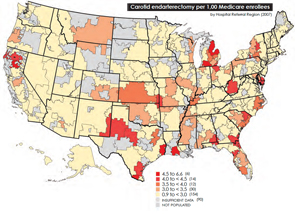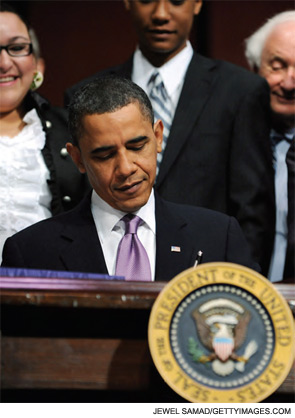Although the new U.S. health care law does not specifically alter the current fee-for-service payment structure, changes to how physicians and hospitals will be reimbursed for services are under construction. These changes are reflected by the growing focus on the development and implementation of quality improvement and physician and institutional performance measures on which reimbursement will increasingly be made, panelists said here on Sept. 11 at the 2011 American Academy of Otolaryngology-Head and Neck Surgery (AAO-HNS) Annual Meeting.
A Blessing and a Curse: Health care reform comes at a steep price
There is a Chinese proverb that is both a blessing and a curse. The blessing is, “May you live in interesting times,” and the curse is, “May you live in interesting times.” All of us would like things to stabilize into a constant, comfortable and predictable environment for us to live our lives, raise our families and care for our patients. We are entering the most complex and challenging period that medicine has experienced since the 1960s when Medicare was introduced. From now on, everything we have come to know and are comfortable with in our professional lives will change.
Physician Groups Set 2011 Agenda: Medicare payment reform tops the list
Physician groups representing otolaryngologists have ambitious 2011 policy and legislative agendas that include pushing for replacement of the Medicare physician payment formula and helping to shape health reform’s implementation.

A Seller’s Market: How to prepare your practice for sale to a hospital
It’s 2011 and the pendulum is once again moving toward private practices selling to hospitals or affiliated foundations. Several years ago, the same phenomenon drove the medical market. Management companies and hospitals went on an acquisition frenzy, purchasing practices at breakneck speed. Soon, hospitals were dissatisfied, management companies went broke and physician practices went private again. Physicians simply proved to be less motivated and productive when employed by hospitals or affiliated with management companies.

New Frontiers: Medical tourism brings potential for big business but poses big questions

Payment Limbo: Medical societies take on SGR reform
In June, Congress gave physicians relief from the scheduled 21 percent Medicare pay cut, but only until the end of November. The payment patch, which briefly increases reimbursement by 2.2 percent, leaves doctors in limbo.

The Opt-Outs: Otolaryngologists extol the benefits of third-party independence
When describing to the curious the benefits of opting out of both Medicare and private insurance, Gerard J. Gianoli, MD, president of The Ear and Balance Institute in Baton Rouge, La., often recalls one particular example: During one 90-day global period about five years ago, after an eight-hour resection of a skull-based glomus tumor, post-operative ICU care and several days of inpatient care and the usual post-operative office visits, he received a total reimbursement of $500.

Medicare Battle Heats Up: Geographic Disparities spark look into spending variation
In the wake of this year’s landmark health care reform legislation, one of the most hotly debated topics comes courtesy of the Dartmouth Atlas of Health Care, as politicians, analysts, researchers and physicians grapple over how to resolve the contentious issue of geographical disparities in health care spending.
Audit Agony: Prepare yourself as insurers look to recoup funds
Hayes Wanamaker, MD, an otolaryngologist in Syracuse, N.Y., refers to the recovery audit process of insurance carriers as the proverbial camel’s nose under the tent.

Health Reform to Insure 32 Million: Are you ready for them?
The new health system reform law is expected to reduce the number of uninsured Americans by 32 million people, and that means more paying patients for physician practices. Many doctors, however, worry that the law’s lack of Medicare payment reform and medical malpractice caps will exacerbate a looming physician shortage. This raises questions about how successful the law will be in increasing health care access.